
The cyber security sector is continuing to grow, with a report from GOV.UK showing a 10% (5,300) increase in employees in the cyber security sector, in the past 12 months in the UK alone.
Meaning that cyber security professionals are in more demand than ever.
But to get these jobs, you’re going to need certification to prove you can do the job. So, which cyber security certification is best for you?
What are the Best Cyber Security Certifications in 2024?
If you’re searching for the “best cybersecurity certifications for 2024”, it’s a safe bet you’re looking for information on certifications that will boost your career, help you earn more, and overall make you better at your job.
Unfortunately, what you might find are plenty of articles from cyber security vendors detailing how their certifications are the best.
So today we’re using Skillsoft’s 2022 IT Skills and Salary Report released earlier this year to give you a data supported view of “the best cybersecurity certifications” for your career!
They’ve taken into consideration the following criteria for making their list:
- Which are the most widely held certifications by IT and cyber security professionals.
- The top paying cyber security certifications in the UK, Europe and the world?
- Which certifications are currently most-pursued by cyber security professionals.
Best Certifications in the UK and Europe
CISSP — Certified Information Systems Security Professional
Top of the list and the creme-de-la-creme is the Certified Information Systems Security Professional (CISSP).
Provided by the ISC2, or the International Information System Security Certification Consortium, it is one of the most sought-after credentials in the industry. And additionally, it is the highest paying certification in EMEA and the UK, with IT professionals holding this certification earning £82,666 on average.
This certification is for the highest level so cyber security professionals such as:
- Chief Information Security Officer.
- Director of Security.
- IT Director.
- Security Analyst.
- Security/ Network Architect.
Requirements: To qualify for this cyber security certification, you need to pass the exam, as well as having five years of experience working in two or more of the eight domains of the ISC2 CISSP Common Body of Knowledge (CBK). These domains are:
- Security and Risk Management.
- Asset Security.
- Security Architecture and Engineering.
- Communication and Network Security.
- Identity and Access Management (IAM).
- Security Assessment and Testing.
- Security Operations.
- Software Development Security.
CISSP Exam Cost UK: £585.
 CISM — Certified Information Security Manager
CISM — Certified Information Security Manager
Meanwhile, we have ISACA’s Certified Information Security Manager (CISM) certification coming in as the third highest-paid certification in EMEA, fetching an average salary of £76,705.
You will be tested in your expertise in security governance, risk management, security program and incident management.
The CISM is the certification of choice for those looking to move from being hands-on with the technical side of cybersecurity, to the managerial. This makes this certification ideal for those looking to progress to these positions:
- Chief Information Security Officer.
- Head of IT Security.
- IT Manager.
- IT Director.
- Information Security Manager.
Requirements: To earn the CISM certification, you need to have at least five years of experience in information security management: Additionally, two years of which need to be general information security experience.
CISM Exam Cost UK: £450 for ISACA members, £600 for non-members.
 CISA — Certified Information Systems Auditor
CISA — Certified Information Systems Auditor
While the CISA doesn’t appear on the “Top Paying Certifications” list for Europe or the UK, it does appear on every other list, coming in as the third highest paid certification in the Asia-Pacific region.
Another certification from the ISACA, the CISA is focused on confirming a cyber security professionals expertise in auditing IT and business systems: Helping to stop fraud and non-compliance, analyse audits and report on their findings to an organisation.
This certification is best for these professionals:
- Cyber Security Auditor.
- IT Auditor.
- IT Security Engineer.
- Systems Internal Auditor.
- Cyber Security Consultant.
Requirements: This certification requires five years of experience in systems auditing, control, or security.
CISA Exam Cost UK: £450 for ISACA members, £600 for non-members.
 Best Entry-Level Cyber Security Certifications
Best Entry-Level Cyber Security Certifications
But earning these top-paying certifications isn’t something you can do overnight. After all, some of them require having multiple years of cyber security experience under your belt.
So we’ve put together some of the best entry-level cyber security certifications that you can earn for your career.
Unlike the above certifications, you won’t find these on Skillsoft’s “Top-Paying Certifications” table. Due to them being entry-level certifications, their earning potential is obviously lower than some of the certifications you would earn later in your career.
CompTIA Security+
CompTIA’s Security+ certification is a fantastic starting certification for a cyber security professional, due to being vendor-neutral. Skillsoft’s salary report also shows it is one of the highest pursued, and one of the most popularly held.
It certifies that you have the essential skills necessary to perform core security functions, such as: install and configure systems to secure applications, networks, and devices, participate in risk management, perform threat analysis and possess an awareness of laws and policies.
This certification is a good idea for most cyber security professionals, as well as:
- Security Engineer.
- Cloud Engineer.
- Security Administrator.
- Network Administrator.
- Help Desk Manager.
Requirements: Unlike the above certifications, the CompTIA Security+ exam has no strict requirements. CompTIA does, however, recommend having at least two years of IT security experience and encourages you to earn your CompTIA Network+ certification first.
CompTIA Security+ Exam Cost UK: £233.
 GISF — GIAC Information Security Fundamentals
GISF — GIAC Information Security Fundamentals
This certification from the Global Information Assurance Certification is an absolutely entry-level certification, for anyone new to cyber security who needs help with the fundamentals.
This will cover the basics of computer networks, security policies, incident response, as well as an introduction to cryptography and cyber security terminology.
The GISF is a good idea for people moving into a career in cyber security and entry-level cyber security positions.
Requirements: The GISF requires no previous cyber security experience, although familiarity with basic computer and technical knowledge is a good idea.
GISF Exam Cost UK: £750.
 GSEC — GIAC Security Essentials Certification
GSEC — GIAC Security Essentials Certification
Another certification from GIAC, this one is a slightly more advanced but still great entry-level certification: Perfect for someone with a background in IT, looking to move into cyber security.
It shows you understand the real-world applications of your cyber security knowledge. It covers areas such as active defence, cloud security, network security, incident response, penetration testing, and more. The GSEC is a great certifications for the following positions:
- IT Security Engineer.
- IT Security Manager.
- Security Manager.
- Security Administrator.
- Penetration Tester.
Requirements: Again, the GSEC exam doesn’t have any specific requirements: But would benefit from some foundational knowledge and experience in working with computer networks or information systems.
GSEC Exam Cost UK: £1,025.
 ISACA Cybersecurity Fundamentals Certificate
ISACA Cybersecurity Fundamentals Certificate
With the CISA and CISM being two of the highest-paid certifications in the world, they’re a great career goal to aim for. So if you’re looking for entry-level certifications, then ISACA’s Cybersecurity Fundamentals Certificate is a great place to start.
This certification shows you understand cyber security concepts, architecture principles, incident response, the security of evolving technologies and networks, systems and data security.
The Cybersecurity Fundamentals Certificate is a good idea for people moving into a career in cyber security and entry-level cyber security positions. And is a good starting point for someone interested in further pursuing the ISACA certification route.
Requirements: Again, this certification requires no previous cyber security experience, although familiarity with basic networking would be advantageous.
ISACA Cybersecurity Fundamentals Certificate Exam Cost UK: £118 for ISACA members, £156 for non-members.
 Which Cyber Security Certification is Best For You?
Which Cyber Security Certification is Best For You?
Which cyber security certification is best for you depends on a wide-variety of factors. It’s not a one size fits all. Here are a few of the different factors you need to consider before you make your choice:
Your Experience
The most obvious factor to consider is your experience. Is the certification one that is actually going to be useful to you and your career.
For example, there’s not much point completing an entry-level certification like the GISF, if you’re a few years into your cyber security career.
How Much it Costs
Earning new certification can range from the low-hundreds to the thousands: And once you’ve earned the certification you’re not done there, as you typically have to renew your certification annually, for a fee.
So while earning a new cyber security certification typically allows you to earn a higher wage, it also means you need to make sure that earning the certification in the first place is financially feasible. And that you choose a certification that is actually going to be relevant to your career and earning potential.
How Long it Will Take
Something else to consider before you commit to earning a new certification is if you have the time and energy to dedicate to passing the exam, before you start.
Earning a new certification can be a long and difficult journey, so it’s pivotal to ensure you can commit your time and energy, not just financially.
Your Career Goals
It’s important to consider your long term career goals, and which certifications will help you reach them. If you know which area of cyber security you want to specialise in for example, which certifications will help you get there?
For example, the certifications we mentioned earlier, the CISA and CISM. While both are good for a cyber security professional, they’re specifically tailored for cyber security professionals looking to specialise in auditing and managing respectively.
What the Jobs You Want to Apply For Are Asking For
Similarly to the above, you should research into the jobs you want in the future, and what certifications they commonly ask for. Additionally you can reach out to hiring managers or recruiters in your industry, who will likely be happy to help and give advice.
How to Get Started in Cyber Security
It can be tough to break into a new industry: And cyber security is no exception. Below, we’ve listed some of the steps you may want to take if you’re just starting out in a career in cyber security.
Earn a degree in cyber security or computer science.
While not a small undertaking, earning a degree in computer science, IT, or cyber security is the typical starting place for someone working in cyber security.
To help decide which university degree is right for you, there are a few websites which can help.
The National Cyber Security Centre is an independent body that has a list of cyber security degrees they have independently accredited that you can see here.
Or you can see here, for Edurank’s list of 100 Best universities for Cyber Security in the UK, based on their research performance in cyber security.
Earn an entry-level certification
As we stated above, the cyber security certification that is best for you might not be the same as the best for someone else. So even when choosing an entry-level certification, it’s important you take the time to evaluate which certification will help you most in your career.
However, if we absolutely had to pick one, it would probably be the CompTIA Security+.
It’s not the most entry-level certification on our list, as it is generally advised to have some understanding of IT and networks under your belt before you take it. But it is one of the best stepping stones for a career into cyber security for two reasons from an IT employment perspective:
- It is industry-wide recognised: As an industry leader in cyber security certifications, CompTIA is globally recognised, making it easier to get started in cyber security.
- It is vendor-neutral: Being vendor-neutral means you’re not tied to any specific technology. Making starting your career much easier, as you can apply to a wider range of jobs.
Speak to a cyber security professional or recruitment consultant
A great step to take is to speak to someone who can offer you some advice.
For example, a cyber security professional will be able to give you pointers about which certifications are most relevant in the current market.
Or, a recruiter who specialises in cyber security might be able to point you in the direction of some entry-level cyber security roles.
Start with an entry-level job in IT
And of course, possibly the very best thing you can do for your career, is get some hands-on experience in the wider IT industry as a stepping stone into cyber security.
This can be roles like IT Technician, 1st Line Support Engineer, or Help Desk Engineer.
Jobs in Cyber Security
Almost every job in cyber security requires you to have earned some certifications, as they are widely regarded as evidence of your level of expertise. Even more than years of experience.
For the roles we’re currently hiring for in cyber security, you can see our open vacancies here.

 CISM — Certified Information Security Manager
CISM — Certified Information Security Manager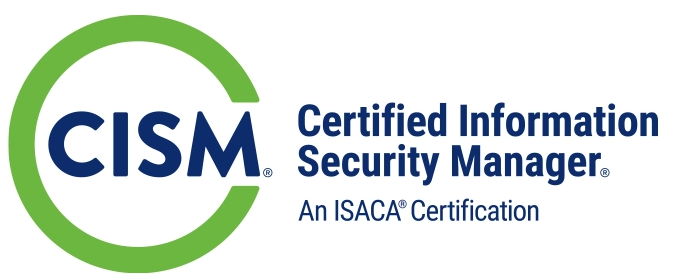 CISA — Certified Information Systems Auditor
CISA — Certified Information Systems Auditor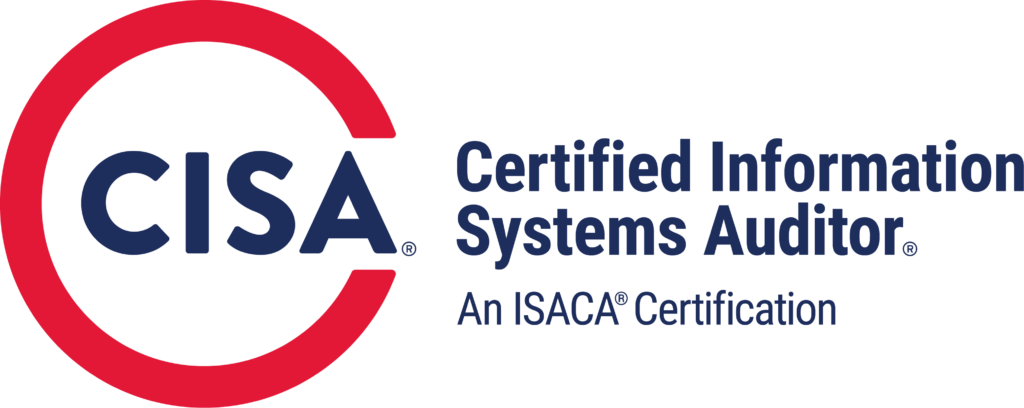 Best Entry-Level Cyber Security Certifications
Best Entry-Level Cyber Security Certifications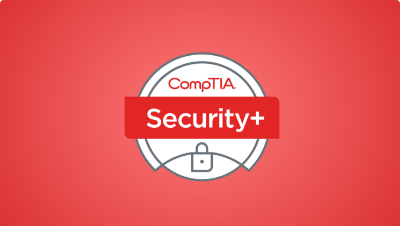 GISF — GIAC Information Security Fundamentals
GISF — GIAC Information Security Fundamentals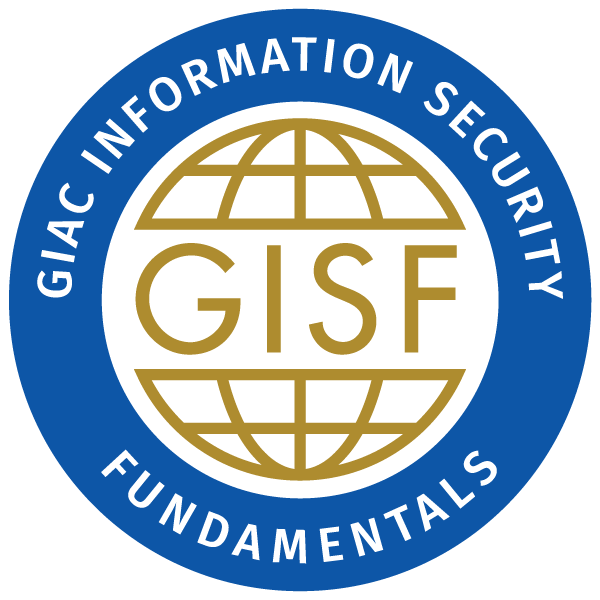 GSEC — GIAC Security Essentials Certification
GSEC — GIAC Security Essentials Certification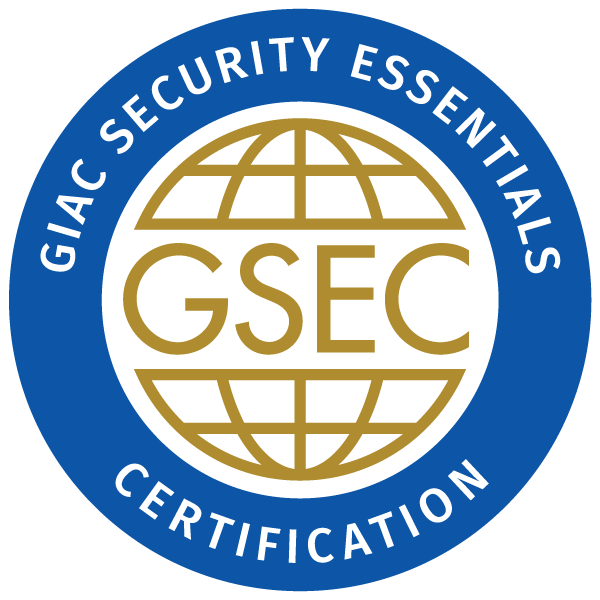 ISACA Cybersecurity Fundamentals Certificate
ISACA Cybersecurity Fundamentals Certificate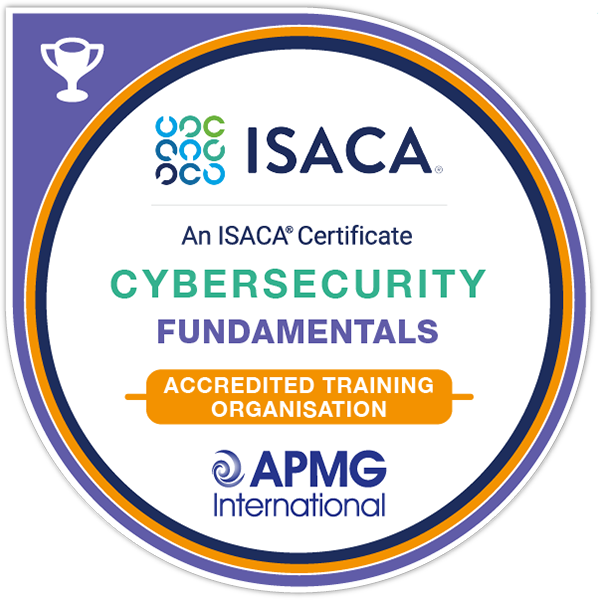 Which Cyber Security Certification is Best For You?
Which Cyber Security Certification is Best For You?